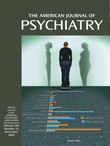Psychosocial Treatment for First-Episode Psychosis: A Research Update
Abstract
OBJECTIVE: This article reviews research on psychosocial treatment for first-episode psychosis. METHOD: PsycINFO and MEDLINE were systematically searched for studies that evaluated psychosocial interventions for first-episode psychosis. RESULTS: Comprehensive (i.e., multielement) treatment approaches show promise in reducing symptoms and hospital readmissions, as well as improving functional outcomes, although few rigorously controlled trials have been conducted. Individual cognitive behavior therapy has shown modest efficacy in reducing symptoms, assisting individuals in adjusting to their illness, and improving subjective quality of life, but it has shown minimal efficacy in reducing relapse. Some controlled research supports the benefits of family interventions, while less controlled research has evaluated group interventions. CONCLUSIONS: Adjunctive psychosocial interventions early in psychosis may be beneficial across a variety of domains and can assist with symptomatic and functional recovery. More randomized, controlled trials are needed to evaluate the effectiveness of these interventions, particularly for multielement, group, and family treatments.



